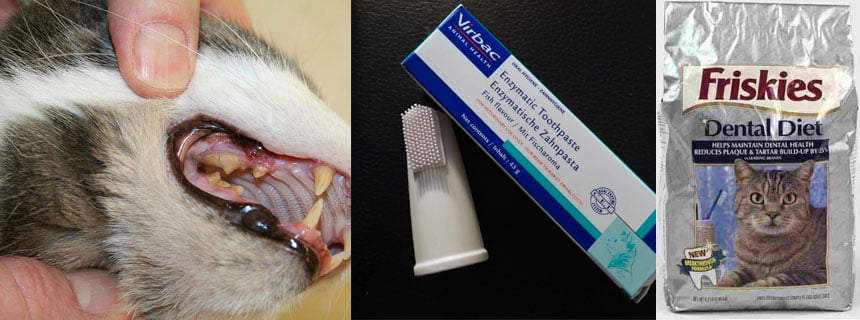I just have to raise this question and it is just a question. The reason why I am asking the question is because (a) gum disease is common in domestic cats and (b) research indicates that, in humans, Alzheimer’s patients declined six times more quickly if their gums were in poor condition and diseased.

It is believed that the bacteria causing gum disease (gingivitis) travels to the brain causing inflammation. The Daily Mail states:
“In those [humans!] with gum disease, the blood contained more chemicals that cause inflammation that is thought to damage the brain…It is thought that the bacteria that damage the gums activate the immune system, triggering the release of the chemicals.” (not sure about the quality of the writing by the way!)
Also people prone to gum disease may be more prone to loss of memory. We know that there are a lot similarities between the anatomy of cats and people. We also know that not enough is known about dementia in cats.
We just don’t know how common it is in cats. We see signs of dementia but the picture is unclear. More work is needed and I feel that more concern or research is needed in respect of both dementia and gum disease in cats (does wet or dry cat food cause gum disease faster than would otherwise be the case?).
If I am correct, it means that cat owners should try harder to brush their cat’s teeth; a very tricky if not an impossible task. In fact, in my view, this can only happen if the cat is adopted as a kitten and the kitten habituated to teeth brushing from a very early age. However, regular brushing may keep your cat mentally healthier longer.
I sense that a lot of cat owners ignore gum disease in their cat. They don’t see it and don’t bother about it until it is so bad that teeth have to be extracted by a vet. Dental treatments at vets carry risks for the cat, sometimes serious. In general oral health is dealt with reactively rather than preventatively. See signs of cat mouth disease.
In this brief note, all that I am doing is flagging up, at an early stage, the possibility that feline gum disease may have consequences beyond the cat’s teeth and that people should be more concerned about their cat’s oral hygiene.


Thanks Debra. My feeling is that a lot of cat owners are not sufficiently clued up on feline gum disease and how prevalent it is and how it needs to be dealt with rather than ignored. It is a tricky subject because veterinary dental cleaning carries risks as the cat is put under.